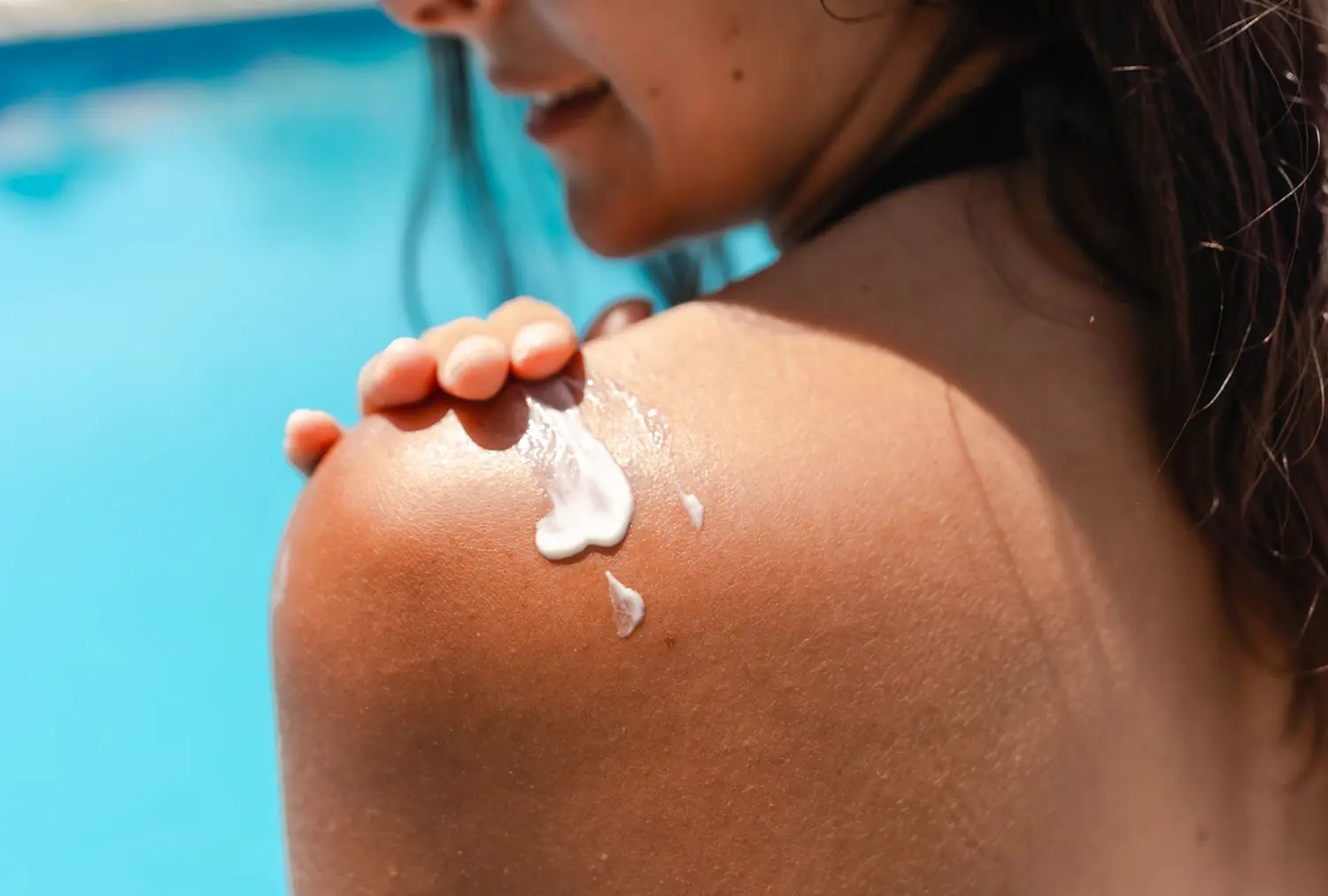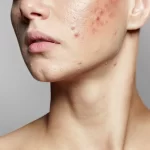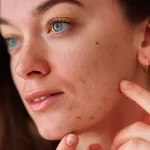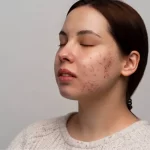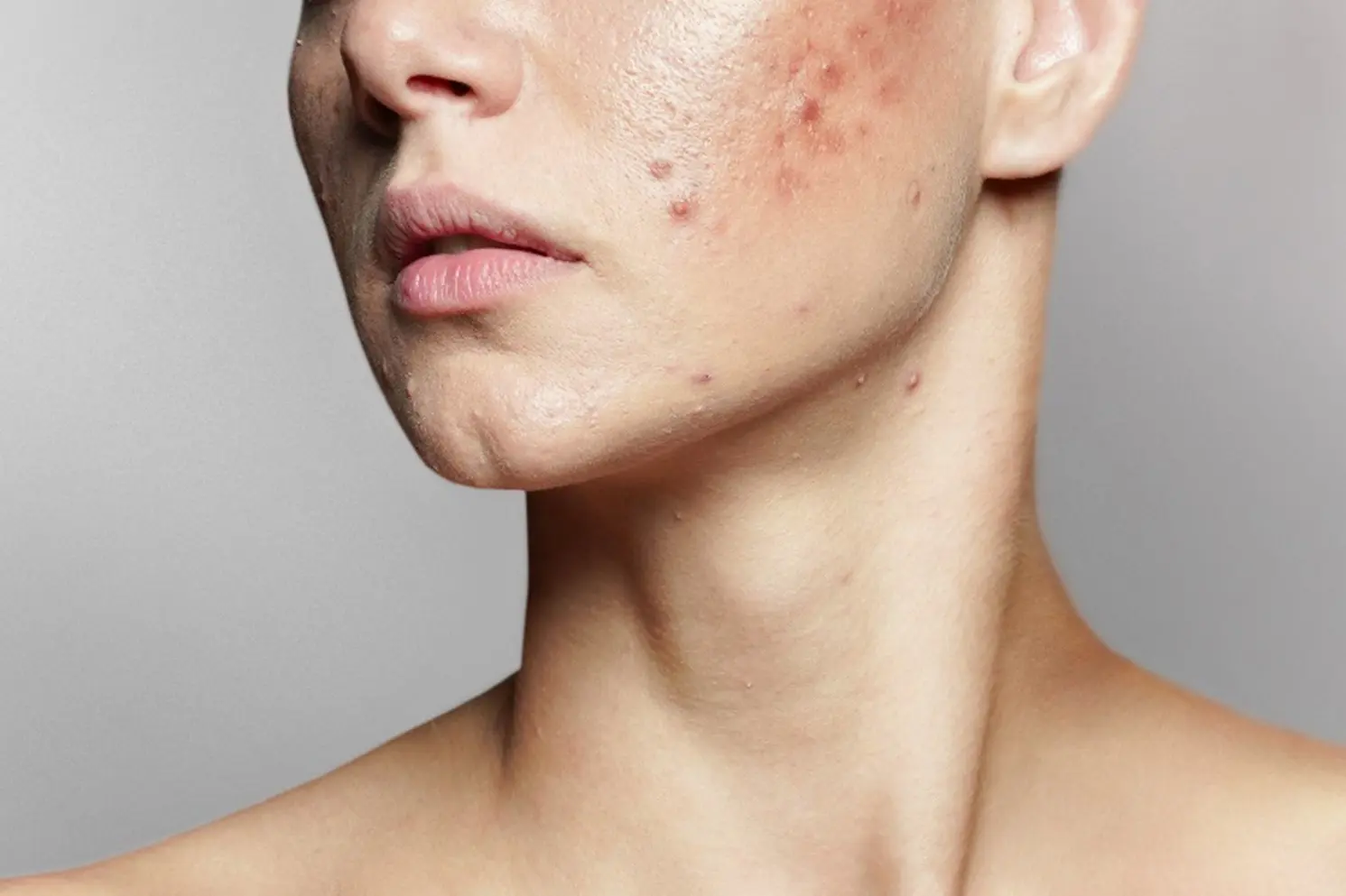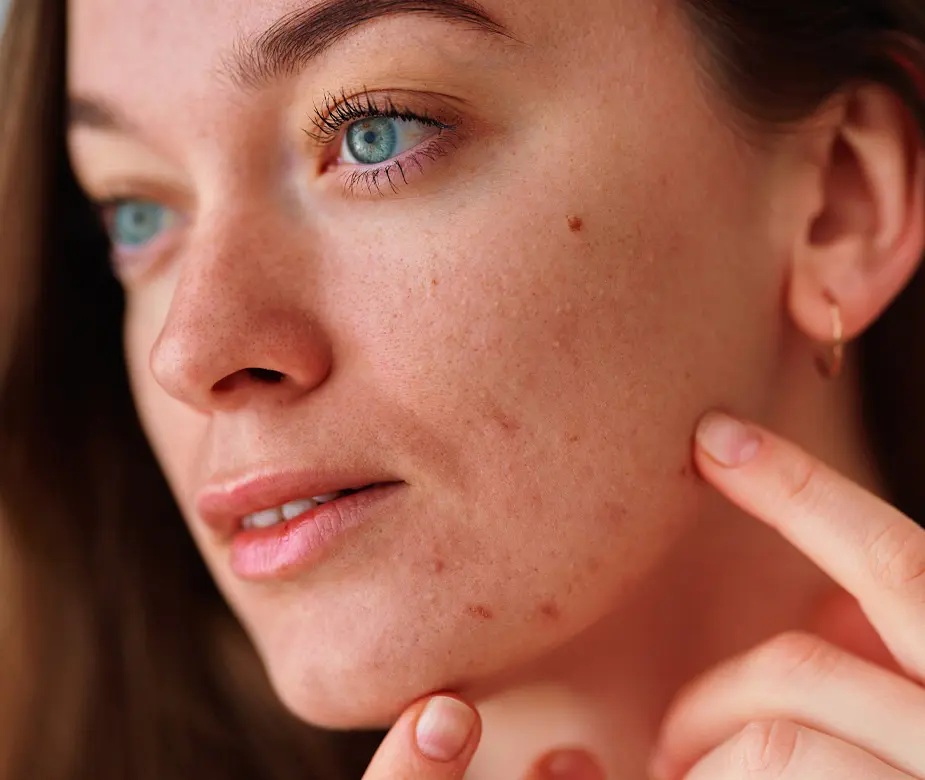DermonDemand brings expert guidance on protecting your skin with the best sunblock for the face recommended by dermatologists.
Dr. Alicia Atkins – a board-certified dermatologist and fellowship-trained expert – emphasizes that the right sunscreen is more than a cosmetic choice. It is a daily health essential that helps block harmful UV rays while fitting your skin type and lifestyle.
Key Takeaways
- Dermatologists recommend using a broad-spectrum sunscreen with SPF 30 or higher daily to protect against both UVA and UVB rays.
- Mineral sunscreens with zinc oxide or titanium dioxide are best for sensitive skin, while chemical sunscreens offer lighter textures suited for oily or acne-prone skin.
- Trusted seals from the American Academy of Dermatology or the Skin Cancer Foundation confirm product safety and effectiveness.
- Different formulations address specific needs, such as tinted sunscreens for makeup users, hydrating options for dry or mature skin, and water-resistant products for outdoor activities.
- Correct application – including using enough product and reapplying every two hours or after 80 minutes of water exposure – is essential for full protection.
Top Dermatologist Picks for Face Sunscreens
#1 Dermatologist Recommended Face Sunscreen
The number one dermatologist-recommended face sunscreen is one that delivers broad-spectrum protection against UVA and UVB rays, has SPF 30 or higher, and suits most skin types. Many experts recommend formulas with zinc oxide or titanium dioxide, which provide physical sunscreen benefits without irritation.
Patients who want a fast, reliable option should select a product with the American Academy of Dermatology Seal of Recognition.
- EltaMD UV Clear Broad-Spectrum SPF 46 – Lightweight, oil-free, with niacinamide to calm redness.
- La Roche-Posay Anthelios Melt-in Milk SPF 60 – Broad-spectrum with advanced UVA protection, fragrance-free.
Best Face Sunscreen in the USA
Dermatologists in the USA emphasize accessibility when recommending sunscreens. Patients often need products available in local pharmacies, online retailers, and national chains. This ensures consistency, since running out of sunscreen and switching to unfamiliar products can reduce compliance.
Commonly available brands that meet dermatology standards include lightweight lotions with broad-spectrum protection and tinted sunscreen options that suit different skin tones. When choosing among these, always verify the product lists SPF 30 or higher and water resistance for up to 80 minutes.
- CeraVe Hydrating Mineral Sunscreen SPF 30 – Drugstore-available, with ceramides and niacinamide.
- Neutrogena Hydro Boost Water Gel Lotion SPF 30/50 – Lightweight, hydrating, widely sold in U.S. pharmacies.
Best for Oily or Acne-Prone Skin
If you have oily skin, pick non-comedogenic sunscreens that do not clog pores. Gel-based or oil-free chemical sunscreens can help reduce shine and prevent breakouts. A tinted sunscreen with a matte finish can also help balance oily areas while giving sun protection.
For oily or acne-prone patients, dermatologists recommend formulas labeled oil-free and non-comedogenic. This prevents clogged pores while still providing strong, broad-spectrum protection. Gel-based chemical sunscreens are often effective because they absorb quickly and leave a matte finish.
Some mineral sunscreens now include micronized zinc oxide that reduces the risk of leaving a white cast. For extra cosmetic appeal, tinted sunscreen can blend more evenly, giving protection without aggravating oily skin. Patients who struggle with breakouts should always check the ingredient list and avoid heavy fragrances.
- EltaMD UV Clear Broad-Spectrum SPF 46 – Oil-free, non-comedogenic, calms acne-prone skin.
- La Roche-Posay Anthelios Clear Skin Dry Touch SPF 60 – Absorbs oil, prevents shine, non-comedogenic.
Best for Sensitive Skin
Patients with sensitive skin often react to chemical sunscreens. Mineral sunscreens with titanium dioxide or zinc oxide are gentler and less likely to cause irritation. These formulas may leave a white cast, but newer tinted versions improve cosmetic appearance while maintaining high protection.
- Aveeno Positively Mineral Sensitive Skin SPF 50 – Gentle, mineral-based, fragrance-free.
- Blue Lizard Sensitive Mineral Sunscreen SPF 30+ – Zinc oxide/titanium dioxide formula, dermatologist-trusted.
Best Facial Sunscreen for Mature Skin
Mature skin benefits from sunscreen with added antioxidants and moisturizing bases. Look for dermatologist-recommended face sunscreen options that support dry skin, since hydration helps reduce the appearance of fine lines. Daily use of SPF 30 or higher also protects against age spots caused by UV rays.
Mature skin requires both sun protection and hydration. Formulas that combine SPF 30 or higher with moisturizing agents, such as hyaluronic acid or ceramides, help maintain a strong skin barrier function. This combination reduces dryness while protecting against further sun-related damage.
Dermatologists also recommend sunscreens containing antioxidants, such as vitamin C or vitamin E. These ingredients provide added defense against free radicals triggered by UV rays, which accelerate signs of aging. Regular use helps reduce the development of age spots, fine lines, and uneven pigmentation.
- Olay Regenerist Hydrating Moisturizer with SPF 30 – Combines SPF with anti-aging peptides and hydration.
- Neutrogena Rapid Wrinkle Repair Moisturizer SPF 30 – Includes retinol + SPF for dual protection.
Best Sunscreen for Everyday Use
For daily wear, choose a lightweight sunscreen that layers well under makeup or moisturizers. A dermatologist recommended a face sunscreen with broad-spectrum protection and quick absorption to ensure consistency. Every day use prevents cumulative UV damage, even during routine indoor activities near windows.
- Supergoop! Unseen Sunscreen SPF 40 – Invisible, weightless, ideal under makeup.
- EltaMD UV Daily Broad-Spectrum SPF 40 – Hydrating, lightweight, designed for consistent daily wear.
Best Sunscreen for Face and Body
If you want one product for both face and body, pick a broad-spectrum lotion that balances cosmetic appeal with water resistance. These formulas save time and ensure you always wear sunscreen, whether at work or outdoors. Check for SPF 30 or higher to protect your skin effectively.
- La Roche-Posay Anthelios Melt-in Milk SPF 60 – Suitable for both face and body, water-resistant.
- Neutrogena Ultra Sheer Body and Face Stick SPF 70 – Portable, non-greasy, easy reapplication.
Best Sunscreen for Face Under Makeup
Makeup users need sunscreen that blends seamlessly. Tinted sunscreen or primer-like textures are ideal, as they provide coverage without pilling. Mineral sunscreens with fine particles are less likely to interfere with foundation and help reduce the white cast effect.
Patients who wear makeup often struggle with reapplication. Powder-based sunscreens and SPF setting sprays offer a convenient solution that doesn’t disturb your foundation. These products allow consistent reapplication throughout the day, even in professional or social settings.
Dermatologists recommend carrying a portable sunscreen product in your bag for this purpose. This ensures you can protect your skin at work, during commutes, or while attending outdoor events. Consistency is the key to reducing cumulative sun exposure and maintaining long-term skin health.
- Supergoop! Glow Screen SPF 40 – Doubles as a makeup primer with a luminous finish.
- Colorescience Sunforgettable Brush-On SPF 50 – Powder sunscreen, convenient for reapplication over makeup.
Best Drugstore Sunscreen for Face
Affordable options can still meet high standards. Many drugstore sunscreens are dermatologist-recommended and offer broad-spectrum protection with water resistance. Focus on non-comedogenic, fragrance-free products that are suitable for sensitive skin.
- CeraVe AM Facial Moisturizing Lotion SPF 30 – Affordable, includes ceramides + niacinamide.
- Neutrogena Clear Face Break-Out Free SPF 50 – Oil-free, drugstore-accessible, non-comedogenic.
Best Non-Comedogenic Sunscreen
Non-comedogenic sunscreen is critical for acne-prone patients. Physical sunscreen with zinc oxide or titanium dioxide is less likely to block pores, while lightweight chemical formulas can work if labeled oil-free. This ensures protection without worsening breakouts.
- EltaMD UV Clear Broad-Spectrum SPF 46 – Gentle, non-comedogenic, dermatologist favorite.
- Neutrogena Clear Face Liquid Lotion SPF 55 – Designed specifically to avoid pore clogging.
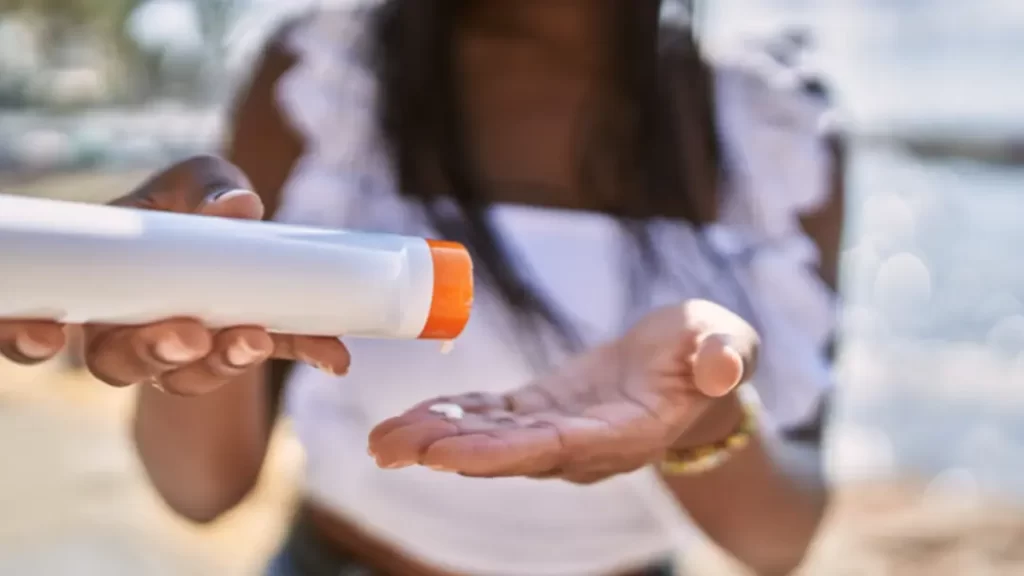
Trusted Seals and Clinical Validation
When selecting sunblock, look for official endorsements that confirm effectiveness and safety. The American Academy of Dermatology provides clear recommendations that prioritize broad-spectrum protection, SPF 30 or higher, and daily use.
Another important marker is the Skin Cancer Foundation Seal of Recommendation, which highlights products that meet strict scientific criteria for UV protection. For concerns about sun damage or suspicious spots, finding a skin cancer dermatologist near me is an important step in protecting your long-term health. Using sunscreens with these seals ensures you are following guidelines backed by clinical research and dermatology experts.
These trust signals give patients confidence that their sunscreen has been independently reviewed for safety and efficacy. Board-certified dermatologists often recommend choosing products with these approvals, especially for individuals with sensitive skin or a higher risk of sun damage.
What Makes a Sunscreen Dermatologist Recommended
Key Ingredients Dermatologists Trust
Board-certified dermatologists recommend sunscreens with zinc oxide, titanium dioxide, or chemical filters like avobenzone for broad-spectrum protection. These ingredients shield against both UVA and UVB rays. Mineral sunscreens are especially recommended for sensitive skin, while chemical sunscreens are often lighter and easier to apply.
Broad-Spectrum and SPF Explained
Broad-spectrum protection means the sunscreen guards against both UVA rays, which cause aging, and UVB rays, which cause burns. Experts recommend SPF 30 or higher for daily use, as this blocks about 97% of harmful rays. Choosing SPF 50 or more can provide extra safety during long outdoor exposure.
How Sunscreen Ingredients Work
Dermatologists recommend sunscreens that rely on active ingredients that block or absorb UV radiation. Physical sunscreen filters such as zinc oxide and titanium dioxide reflect UV rays away from the skin. These minerals are especially beneficial for patients with sensitive skin, as they are less likely to cause irritation.
Chemical sunscreens, on the other hand, contain filters like avobenzone and oxybenzone that absorb UV rays and convert them into heat, which is then released from the skin. These formulas often feel lighter and blend more easily, making them a preferred option for oily or acne-prone skin.
The choice between physical and chemical ingredients depends on comfort and lifestyle. Some patients prefer tinted sunscreens with mineral-based ingredients to reduce the white cast effect, while others rely on chemical blends for quick absorption and cosmetic appeal. Both approaches provide broad-spectrum protection when applied correctly.
Mineral vs. Chemical Formulas
Mineral sunscreens, also called physical sunscreens, use zinc oxide or titanium dioxide to reflect UV rays. They are less irritating and better for sensitive skin. Chemical sunscreens absorb UV rays and often feel lighter on the skin. Both can be effective if used correctly, so the choice depends on comfort and lifestyle.
How to Choose the Best Sunscreen for You
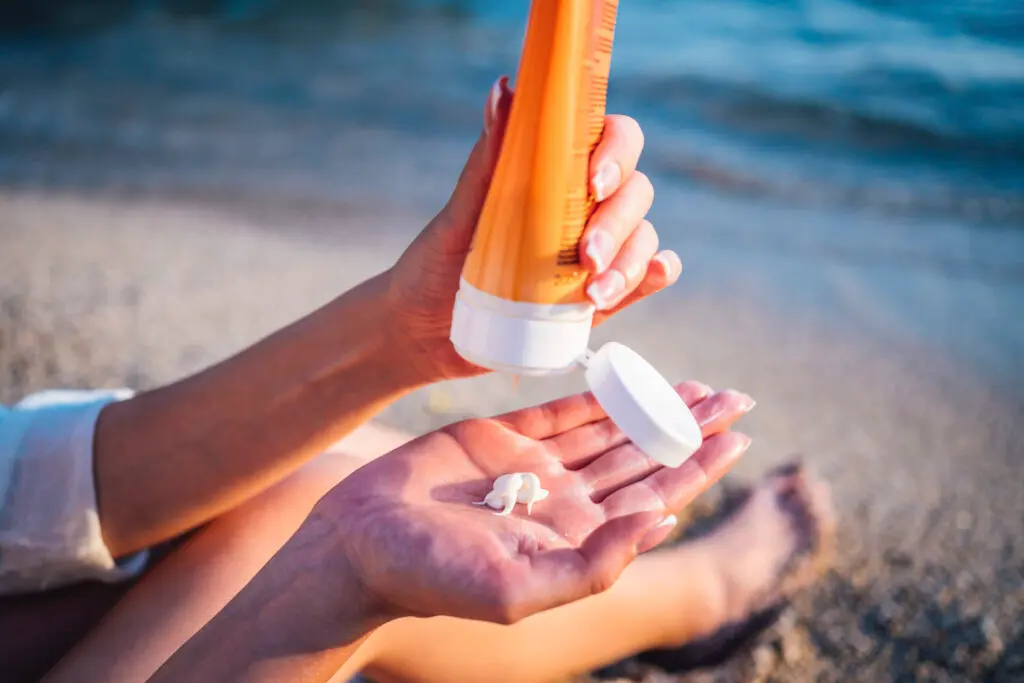
Match to Skin Type and Lifestyle
Your sunscreen should match your needs. If you have dry skin, choose a moisturizing formula that contains hydrating agents. If you exercise outdoors, water resistance is key. For daily office use, a tinted sunscreen that layers under makeup can be ideal.
Prescription vs. Over-the-Counter Options
Most patients can rely on over-the-counter sunscreens; however, prescription options may include higher concentrations or combinations tailored to specific skin conditions. DermonDemand offers private consultations where Dr. Atkins and her team can guide you toward the best dermatologist-recommended face sunscreen for your specific needs.
Common Mistakes to Avoid
Many people apply too little sunscreen or forget to cover key areas, such as the ears and neck. Not reapplying every two hours, or after swimming reduces effectiveness. Avoid using expired products – they lose potency and no longer protect your skin.
Choosing Water-Resistant Sunscreen for Outdoors
If you spend time outdoors, always choose sunscreen with water resistance. Most formulas protect for up to 80 minutes during swimming or sweating. Reapply after that time to ensure continuous protection against UV rays.
How to Apply Sunscreen Effectively
Recommended Amount for Face Coverage
Apply about a nickel-sized amount of sunscreen to cover the face. Spread evenly across the forehead, cheeks, nose, and chin. Ensure the product is fully absorbed before adding makeup or moisturizer.
When and How Often to Reapply
Dermatologists recommend applying sunscreen 15 minutes before sun exposure and reapplying every two hours. If swimming or sweating, reapply sooner, based on the product’s water resistance, which is typically 40 or 80 minutes.
Using Sunscreen with Makeup
Layer sunscreen before makeup for best results. Tinted sunscreen can replace foundation, simplifying your routine. For touch-ups, use powder sunscreens or setting sprays that contain SPF without disturbing your makeup.
Patients who wear makeup often struggle with reapplication. Powder-based sunscreens and SPF setting sprays offer a convenient solution that doesn’t disturb your foundation. These products allow consistent reapplication throughout the day, even in professional or social settings.
Dermatologists recommend carrying a portable sunscreen product in your bag for this purpose. This ensures you can protect your skin at work, during commutes, or while attending outdoor events. Consistency is the key to reducing cumulative sun exposure and maintaining long-term skin health.
Final Take: Expert-Backed Sun Protection
The best sunscreen for the face recommended by dermatologists is one you will use daily and reapply consistently. You can also learn more about DermOnDemand and our team of experts on the About Us page. Look for broad-spectrum protection, SPF 30 or higher, and a formula that matches your skin type.
With DermonDemand and the expertise of Dr. Alicia Atkins, you can protect your skin confidently and start treatment online to access personalized advice from a board-certified dermatologist in less than 24 hours.


